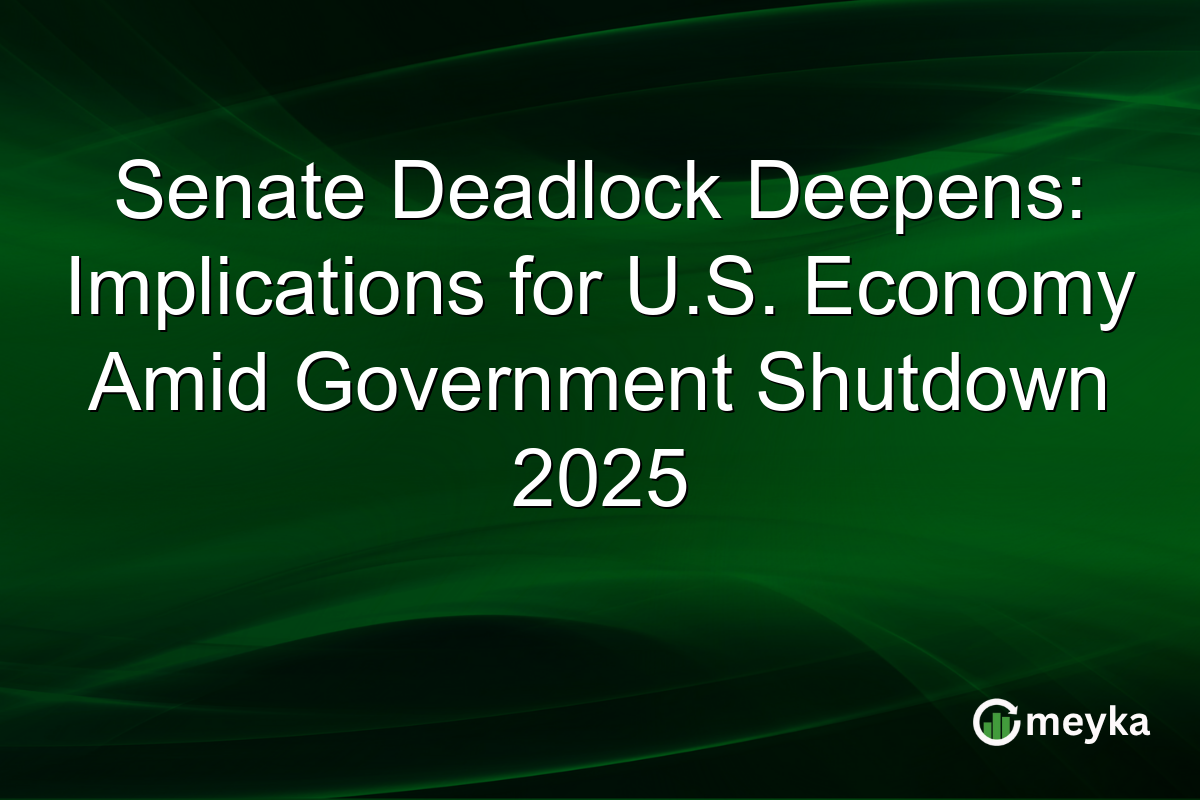Senate Deadlock Deepens: Implications for U.S. Economy Amid Government Shutdown 2025
As the government shutdown of 2025 drags on, the Senate remains in a deadlock, raising concerns for the U.S. economy. Recently, Senate Democrats blocked a GOP proposal aimed at ensuring federal employees receive their pay during the shutdown. This political stalemate not only creates uncertainty for federal workers but also has broader economic implications. With over 800,000 federal employees potentially affected, the ripple effects could destabilize various sectors.
Continue Reading on Meyka
This article is available in full on our main platform. Get access to complete analysis, stock insights, and more.
Read Full Article →




